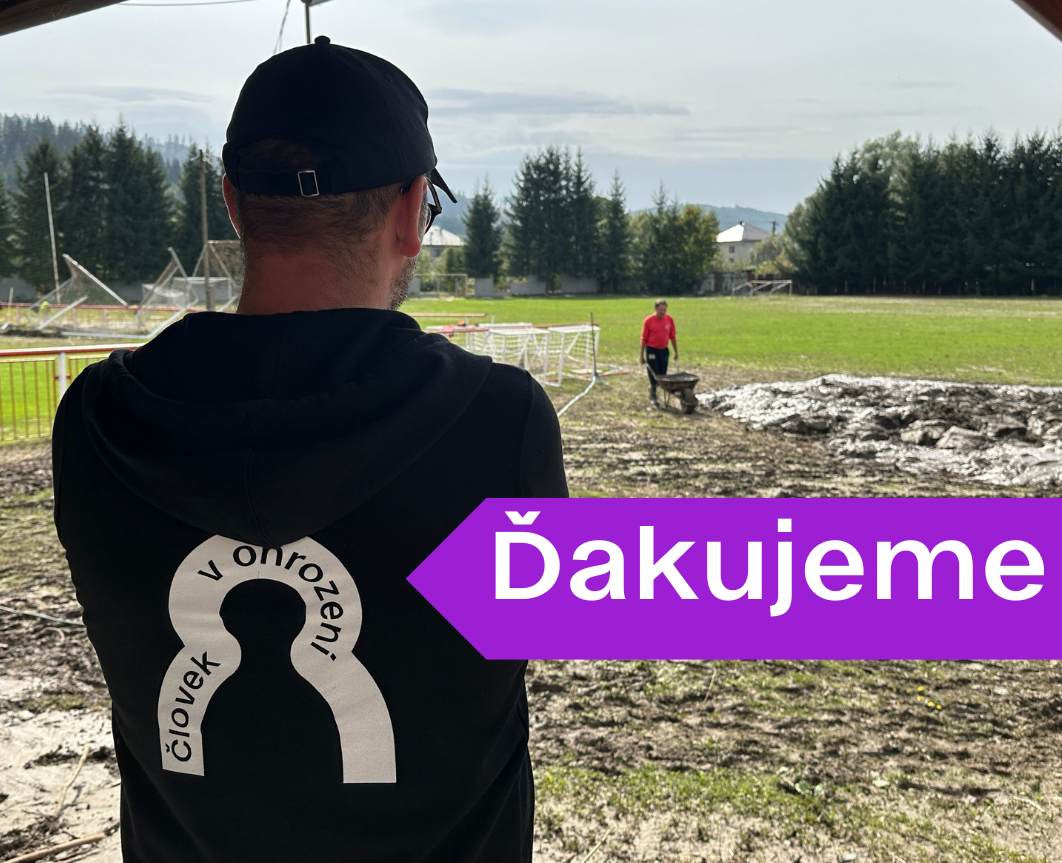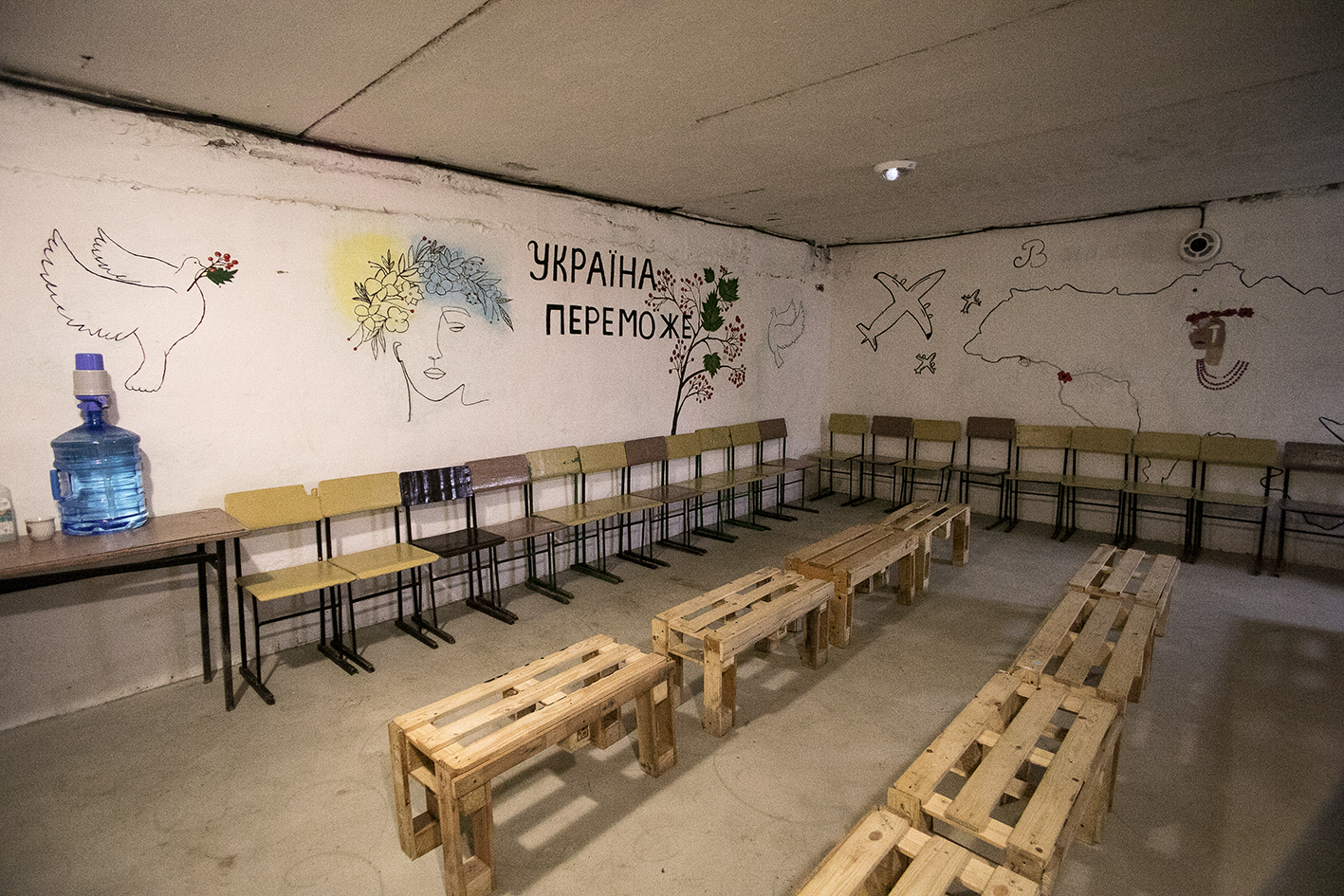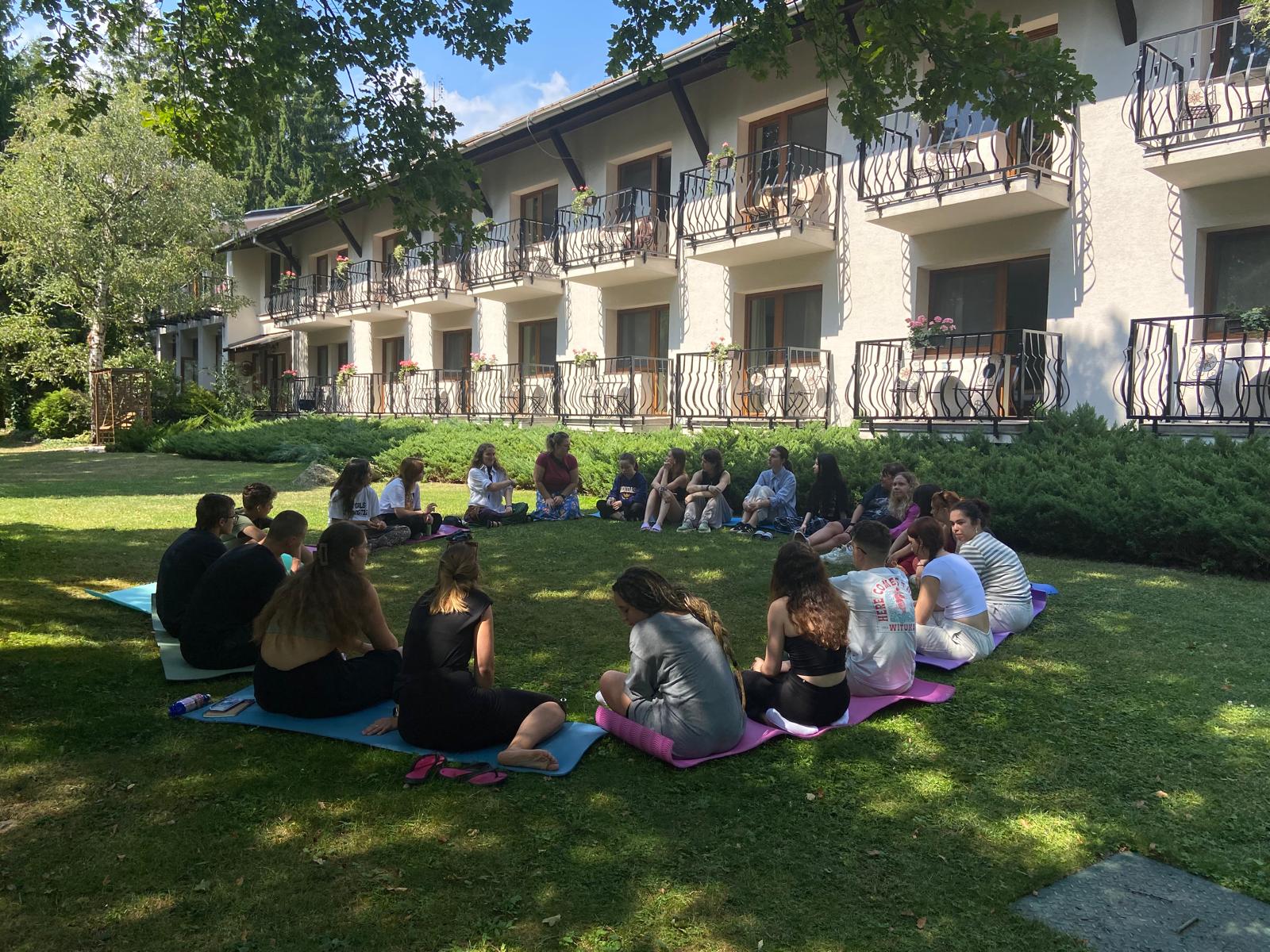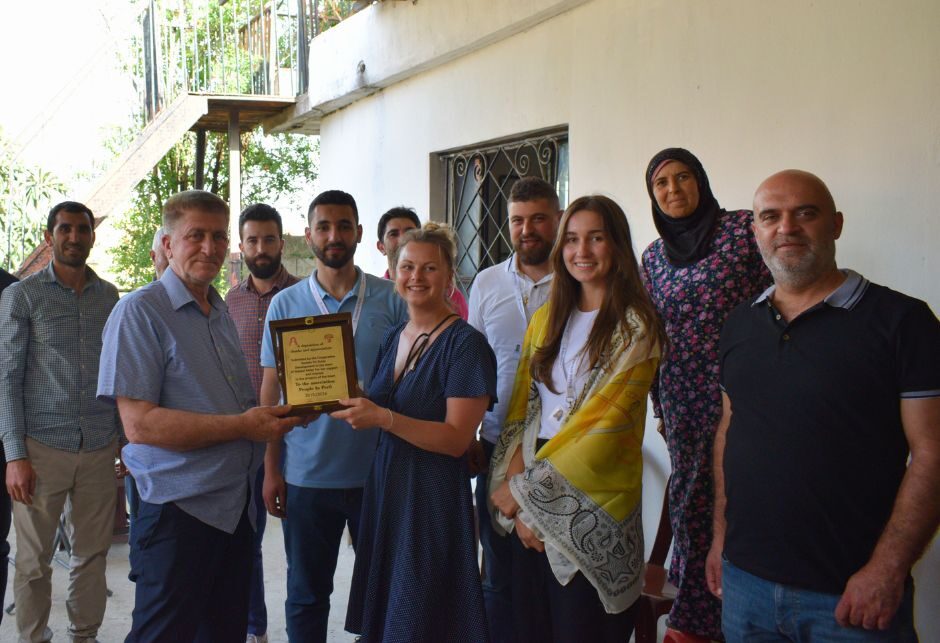What did we achieve in 2024?
In Slovakia, we have been helping people from excluded communities, Ukrainian refugees, and after the September floods, all those who suffered significant damage from the water. In addition, we also have been working in Lebanon, Moldova, Kenya, Bosnia and Herzegovina, Palestine and, of course, Ukraine. We organized the 25th edition of the One World Festival, participated in Pohoda and various inspiring discussions, and published a handbook How to Teach about Poverty. Read what our year 2024 was like.
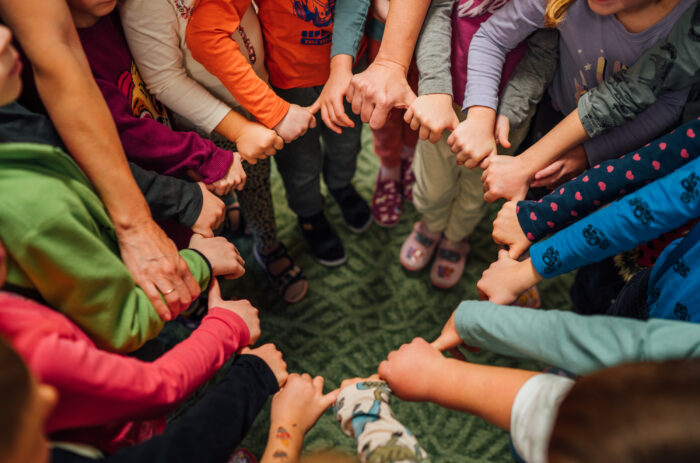
Our work certainly could not be done to the extent and quality that it is without our regular donors from the Friends Club, as well as all the other individuals and businesses who have supported us. Thank you all for your support in 2024.
Slovakia and Social Integration Programmes
In 2024, we operated in 5 regions and 13 localities. Our work in Slovakia has long focused on supporting the development of people from excluded communities. Following the Russian invasion of Ukraine in February 2022, it naturally expanded to include helping people fleeing war. Under the umbrella of Social Integration Programmes, we help these people in five areas – social work, community work, education, employment and volunteering. In 2024, our work reached 22 055 people in Slovakia.
In total, we helped around 11 000 people individually. We provided individual psychosocial support to 5 443 people and the number of interventions was 7 565.
We carried out 2 239 group activities and 2 807 educational activities. A total of 27 050 people participated.
The number of community activities was 402 and 8 292 people participated.
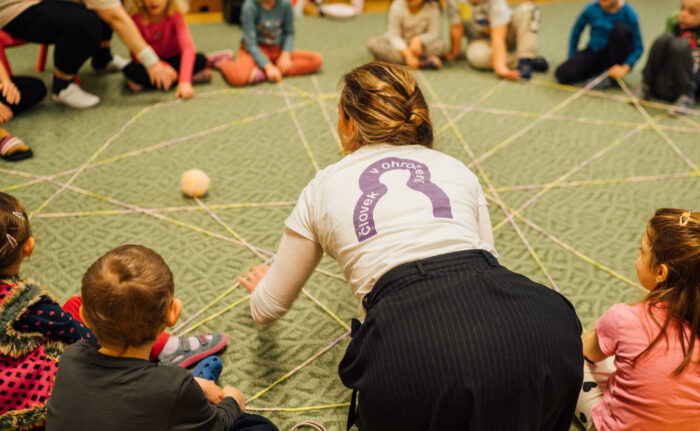
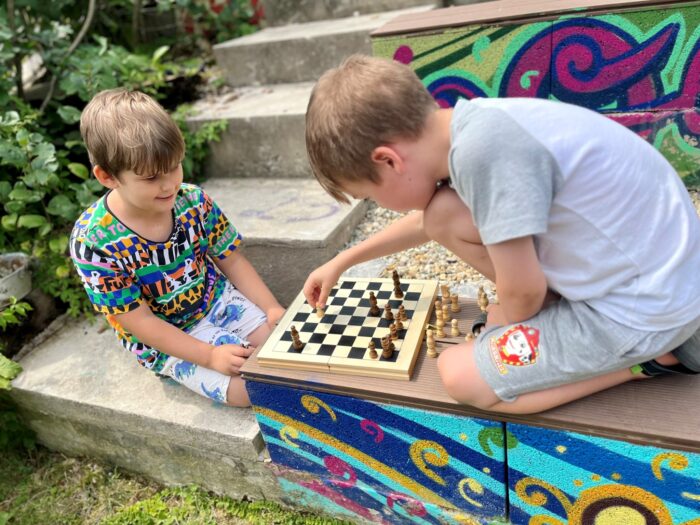
Social work
We are excited to have been accredited to provide specialist social work counselling in 2024. We have also set procedural standards and have begun collecting case studies to update our methodologies – creating a programme memory.
We operated 11 Clubhouses in Slovakia. These are cosily furnished safe spaces where children, young people and adults can come together. Spaces where they can just be, relax, or take part in some of the activities we do there, or learn something new or meet other interesting people. Our Clubhouses are a refuge, a place of support and a space for personal growth. We have started registering them as a low-threshold social service for children and families. You can read more about what such a Clubhouse looks like HERE.
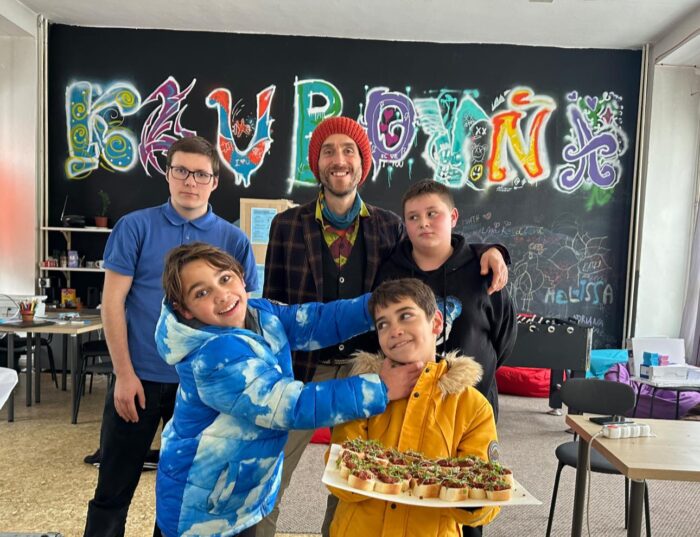
As part of our child protection programme, we have built a system to catch child endangerment cases.
We have established collaborative relationships with key institutions to assess their level of vulnerability.
Our Infoline also serves as a support tool for individual work. In 2024, we handled 1 400 calls on it, of which over 220 were first contacts. We have also introduced email support to improve communication. The Infoline also served to support the organization internally and to improve communication between departments.
Community work
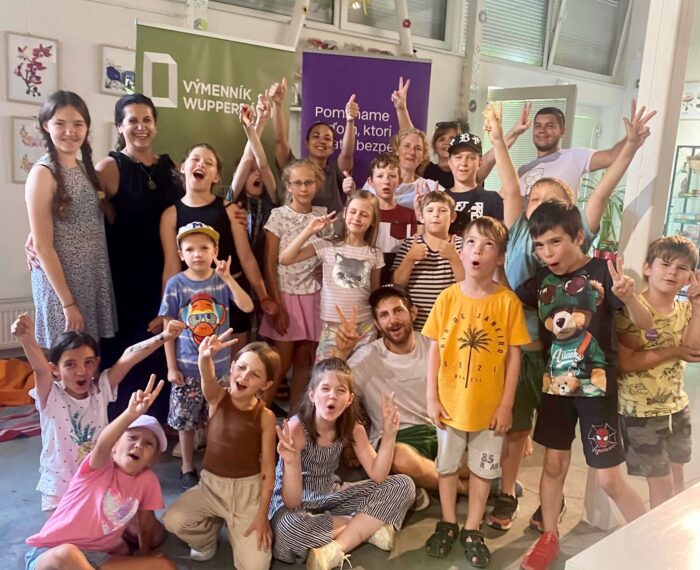
Through various community events we have been connecting and sensitising the community and creating better relationships. Whether it was summer camps for Ukrainian mothers with children, a football tournament, creative activities, festivals such as Humanity, Between Us or Explosion, or even the Children in Safety campaign.
We have also been able to successfully address challenges and activate male and female leaders in community development. Whether it was a pedestrian crossing in Petrovany, repairing a sidewalk in Roškovce or filling a muddy road with gravel in Kojatice. In Sveržov we held a parenting skills workshop, in Žilina we were at the beginning of a Ukrainian-Slovak theatre group and in Bardejov we were at the birth of the Berehyne choir. We strengthened local partnerships and participated in over 150 networking events with cities, non-profits and individuals.
Employment
In 2024, we did well on the employment front, as evidenced by the numbers and collaborations. We provided 1 577 job counselling sessions, helped 260 people into employment, 185 of whom were from the marginalised Roma community and 75 from Ukraine. We also helped to establish 19 small businesses, provided 28 retraining courses and involved 28 first-year students in dual education. We implemented four Living Book events and the second edition of the Equal Cup inclusive football tournament. We made inspirational videos about client stories and organised sensitisation workshops for over a hundred employees of five employers.
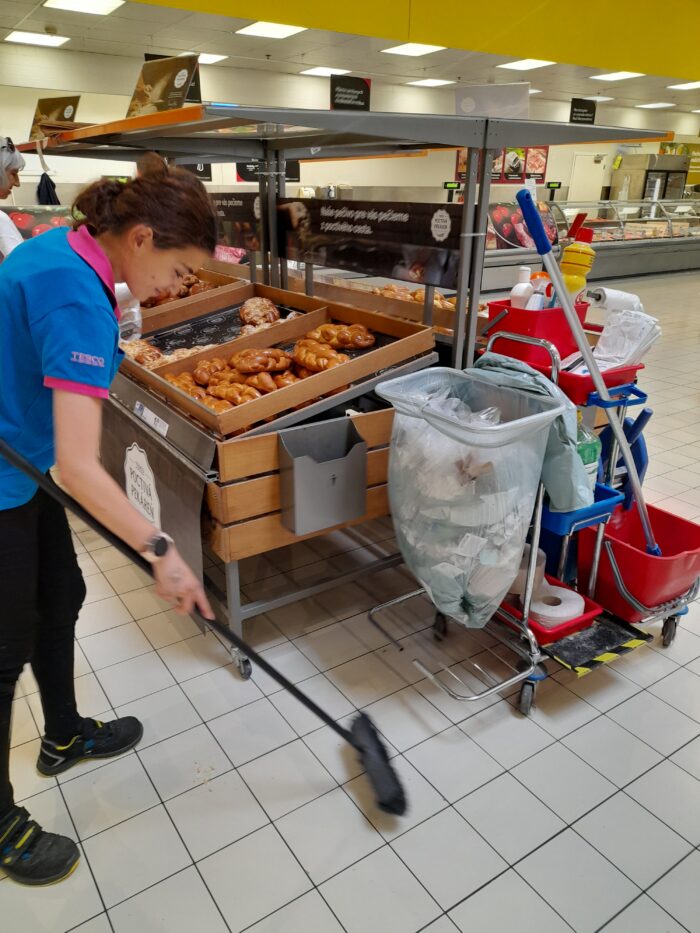
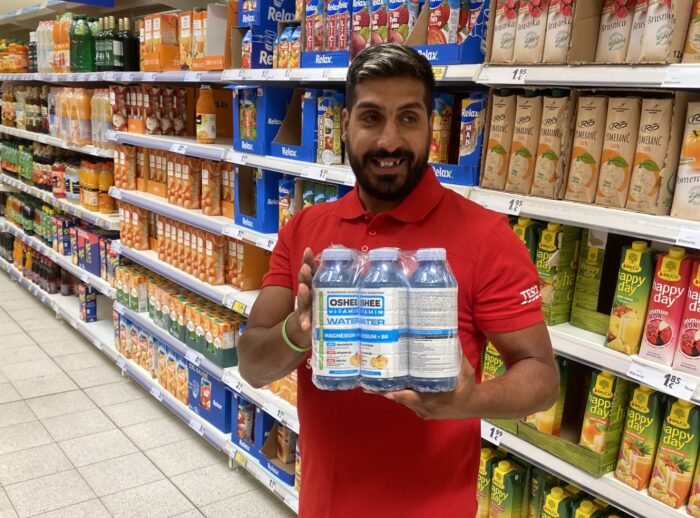
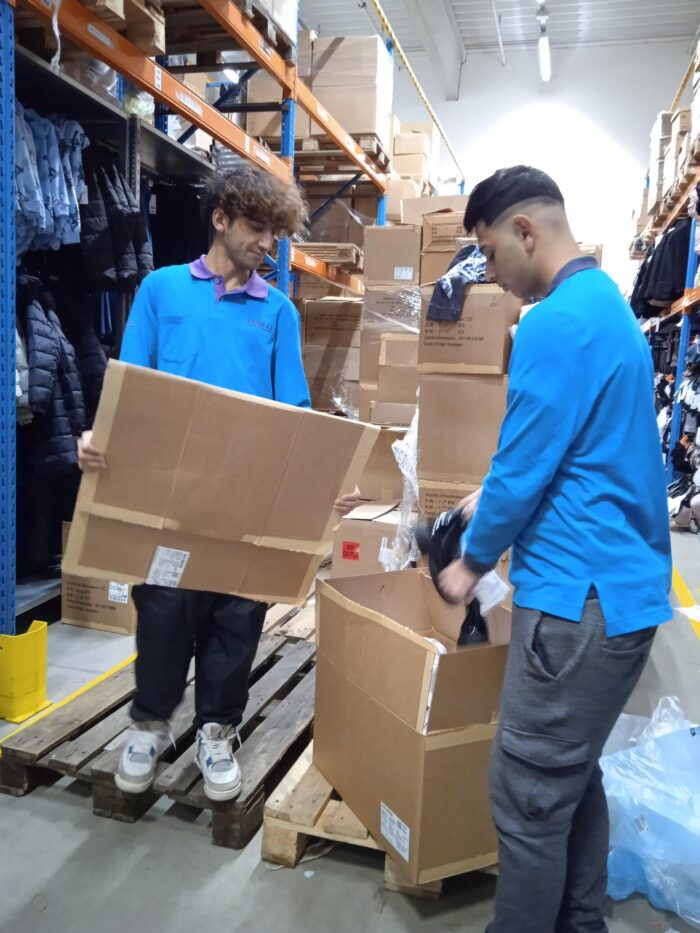
We built local and regional partnerships, launched cooperation and training in the Prešov, Košice and Banská Bystrica regions. We presented our achievements at Profesia Days in Žilina and Košice. We have signed several memoranda of cooperation with other organisations and 19 new partnerships with employers. We have become members of several working groups in which we are trying to influence systemic changes both in the regions and within national platforms. We have presented examples of good practice focused on women’s poverty. We have trained 11 career counsellors and counsellors from primary schools.
You can read what our guiding a young person on the path to employment looks like in Kristián’s story.
Education
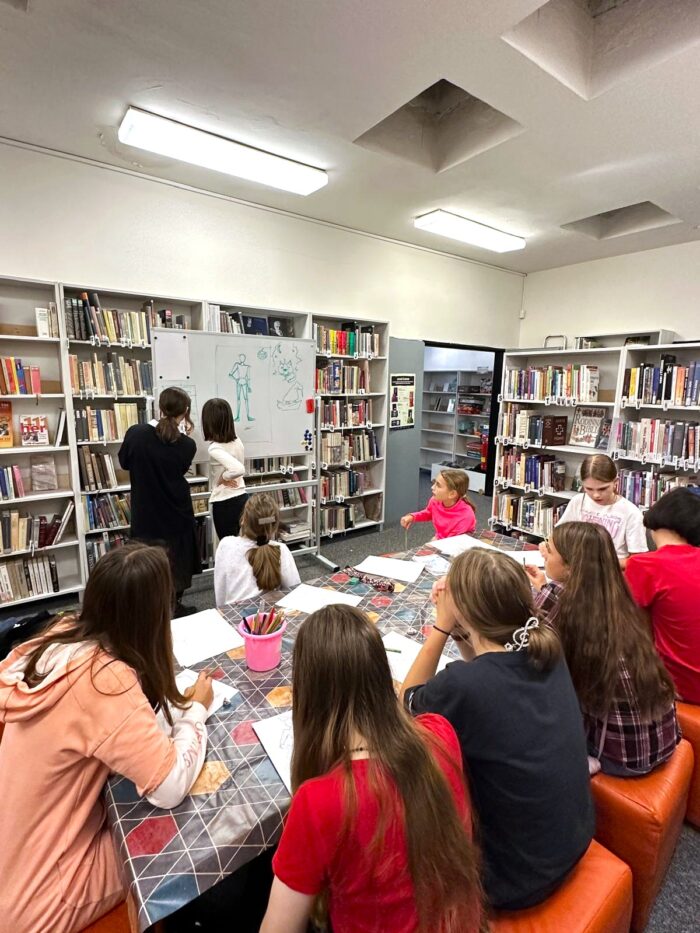
We have focused mainly on non-formal education and supporting formal education through group activities to develop social, emotional and hands-on skills. We engaged in tutoring, mentoring and career counselling. Our methodology is increasingly in demand in schools and one teacher who uses it has won a national award for career counsellors. And what numbers and results has our Education Programme produced? Outstanding.
Improvements in children’s school performance – 86% of parents confirmed positive progress.
Improved attendance – 69% of Roma parents reported improved attendance of their children.
Community connectedness – Collaboration between school, parents and children.
Support for vulnerable groups – Helping children from generational poverty to overcome barriers.
We have been able to include over 35 young people from marginalized Roma communities in our scholarship program, helping them to pay for transportation, school supplies, and boarding. Many of them were able to complete their education thanks to this support. Kristián is one of our smart scholarship recipients who told us his story.
Volunteering
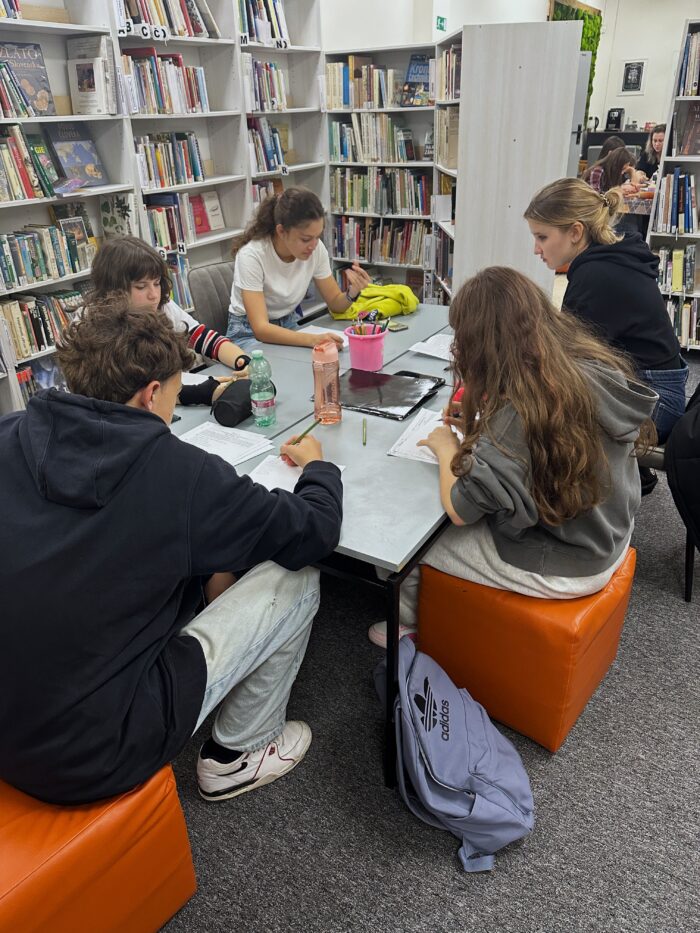
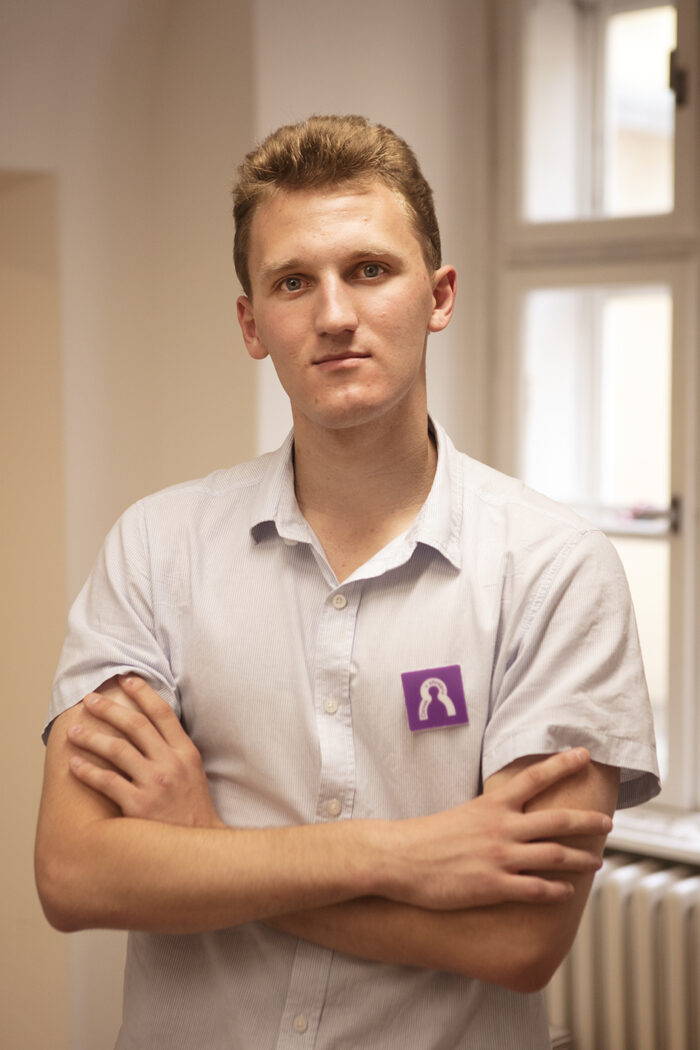

Volunteers are part of an environment that fosters inclusion and community spirit. They become an integral part of many of our departments and enhance the reach and effectiveness of our activities.
This year 75 volunteers were involved, ranging in age from 16 to 53 (50 of whom are regular and long-term). They have worked a total of 3 000 hours at a value of approximately €15 000. They mainly helped us with translations, guiding, painting, teaching, dancing and other activities. Students from seven different faculties volunteered with us and were able to link theory with real-life practice. To get a better idea of what such volunteering looks like with us, you can read the story of our volunteer Ilya.
Humanitarian aid in Slovakia – floods and fire
In mid-September, Slovakia was hit by severe floods and it was immediately clear to us that as a humanitarian organisation that has intervened in natural disasters in various countries around the world, we would also get involved in helping “at home”.
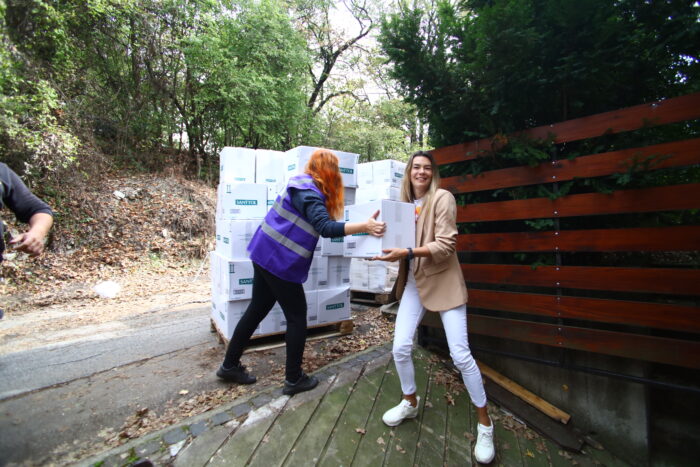
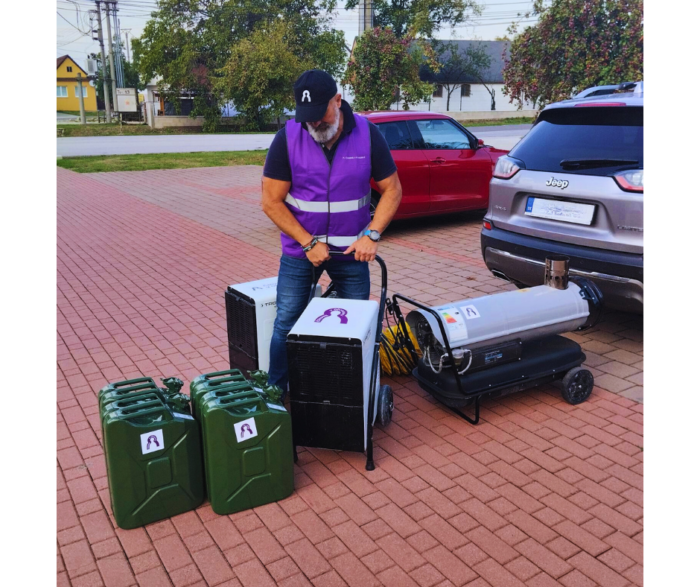
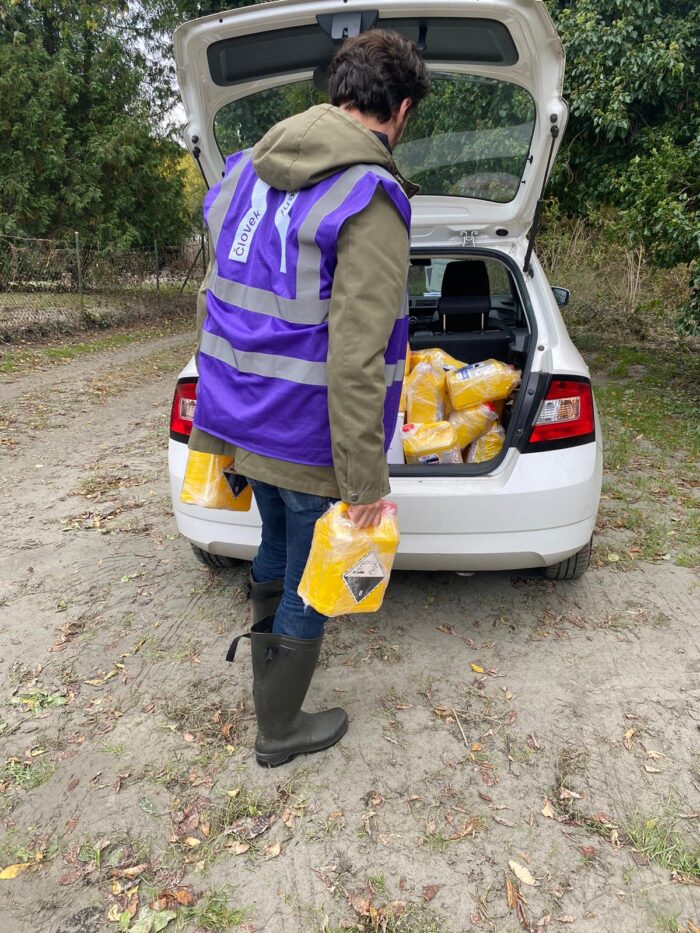
From the very beginning, our teams met in the most affected villages in Záhorie and Kysuce with people who had suffered major or minor damage to their property from the water. During the first trips we monitored the extent of the damage and the meetings with people were full of emotion, anger, despair and scepticism. We announced a public collection and Slovaks once again showed great solidarity by donating more than 100 000 euros to help people affected by the floods. Corporate and institutional donors sent more than EUR 250 000 worth of aid. In total, we therefore collected more than 350 000 euros and distributed them in the form of 1 000 and 2 000 euro donations to the 90 most affected households and municipalities. We provided technical, material and financial assistance to 16 municipalities, and we still had money left over for financial contributions to two voluntary fire brigades and one civil defence association.
You can read more here.
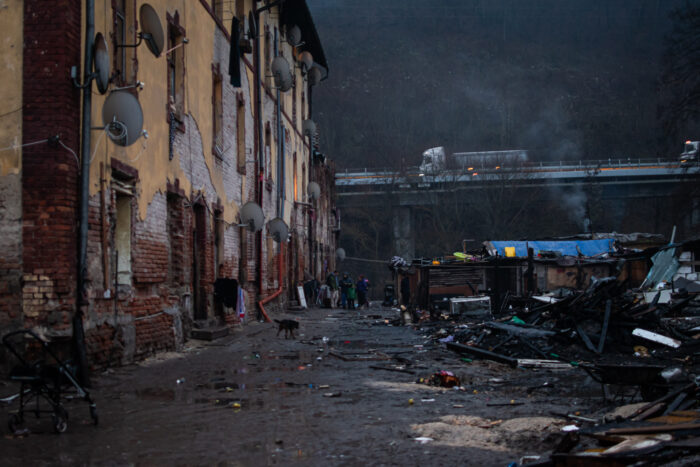
In the middle of November a fire broke out under Pustý hrad in Zvolen. The wooden houses, where 17 people from the marginalised Roma community lived, among them many children, burned down. Chaos broke out, a fight to save lives and the rest of the property. The city declared a state of emergency and we pitched in to help, mapping out the basic needs of the people affected. With the help of several organizations, we were able to secure enough winter clothing and non-perishable food.
Humanitarian aid and development cooperation around the world
We helped not only in Slovakia, but also in Ukraine, Kenya, Lebanon, Moldova, Bosnia and Herzegovina, Palestine and Egypt. We have worked on more than 25 projects.
Ukraine
A large part of our work is still focused on helping people, either directly in Ukraine or refugees who have come to Slovakia. Within the framework of our Social Integration Programmes, we constantly help them with psychosocial support, finding accommodation, schools, employment or health care. However, our Ukrainian mission is also actively working directly in the war-torn country, trying to help local men and women to mitigate the effects of the war. We are renovating air-raid shelters at schools and kindergartens, distributing school supplies, vouchers for warm clothing, and firewood. We organize events for children, psychological workshops, support small businesses and many other activities. And this is what our aid in Ukraine looked like in numbers last year:



- We helped a total of 31 094 people
- we provided assistance in 11 areas, the most so far, and also in the city of Kiev
- we distributed over 79 tonnes of material aid, including firewood, food and hygiene supplies
- 13 064 people have participated in one of our support activities
- We carried out 865 inclusion interventions and 478 protection interventions
- we supported small entrepreneurs and many other business activities
- we helped renovate 14 air-raid shelters at schools and kindergartens
- we distributed 221 vouchers for the purchase of winter clothing
- we supplied 14 households with fuel for the winter, more than 42 tonnes in total
- we created 107 new beds
Here you can watch a VIDEO where Antonina talks about her difficult life and how our help with the wood supply for the winter will help her.
Moldavia
In early 2024, we successfully completed our project to support independent media in the country and contribute to an open and free civil society. We engaged 24 mentors, 30 experts and 15 media organisations from different regions of Moldavia, all of which received support for their strategic priorities, such as content creation or business development, as well as investment in a specific innovative product, service or solution.
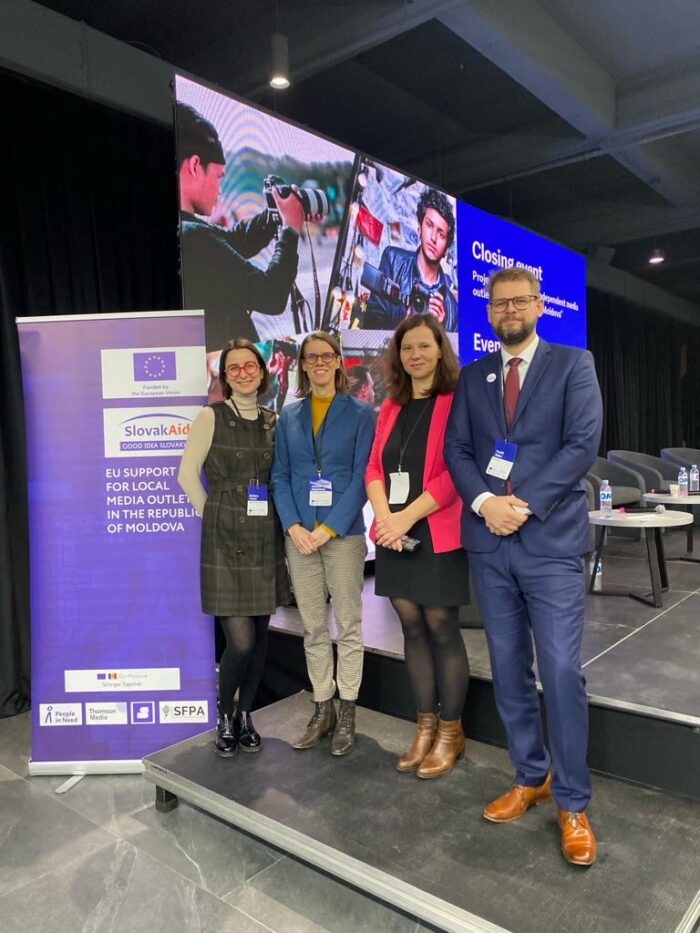
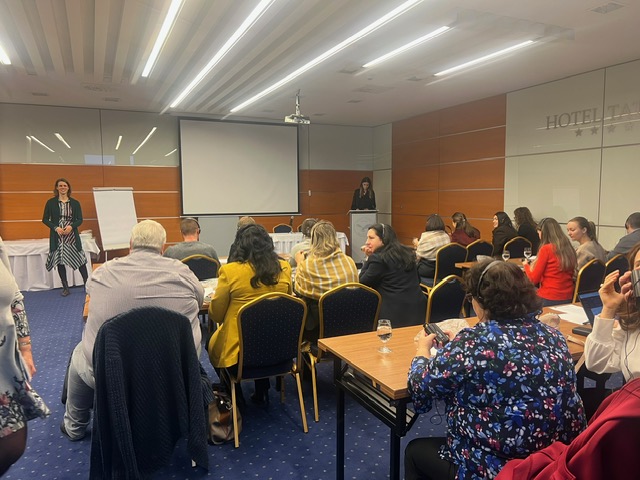
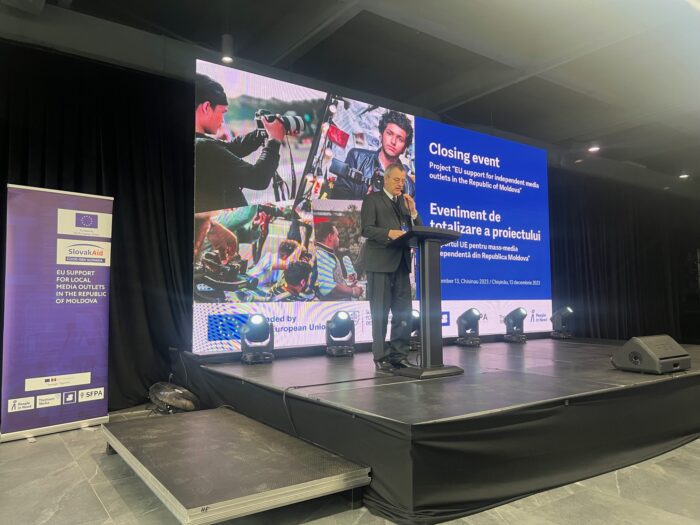
Mentoring proved to be particularly successful in the project, in which different experts and professionals advised the media on how they can improve the quality and impact of their content, as well as how they can improve the technical support and development of their online platforms. Thanks to the grant money, the participating media were able to acquire technical equipment that improved the quality of broadcasts, live broadcasts, as well as articles or public events.
Bosnia and Herzegovina
At the end of the summer we finished a volunteer project involving our volunteer Romana. Thanks to her work, we managed to strengthen the cooperation of civic associations with the city of Mostar and improve the coexistence of the local people. We achieved many positive results, including greater inclusion of the marginalised groups we focused on in the project. All of the civil society organizations involved reported an improvement in their visibility and capacity building, which may help them to obtain further funding in the future. At the same time, communication between local authorities and civil society has also improved.

A few words from our volunteer Romana:
Bosnia and Herzegovina is a developed country, where some services may work worse than in Slovakia, but the priorities remain the same. I think that my stay here helped me to realise where Slovakia is moving faster thanks to EU membership and on the other side where we are taking a step backwards and where these steps can lead to. I have spent two exchange stays in the country during my studies and I like it very much. That’s why I was excited about the opportunity to work on a project like Mostar, where I saw tangible results in the city and the community.
You can read the article about Romana HERE.
Lebanon
In September 2024, we managed to successfully complete another project in Lebanon, in which we collaborated with the local International Humanitarian Relief organization and our office in Lebanon, supported by SlovakAid. Our team also visited the country in person to see if all worked out as it was expected to.

Our aim was to teach new food processing skills to people in the local community, as well as to Syrians and Palestinians. These in turn will provide them with additional or new income, which can improve their livelihoods but also build resilience and self-reliance. We have also worked on improving local infrastructure by installing solar panels and water tanks to collect rainwater. Nearly 200 people were directly involved in the activities. We have helped another nearly 1 500 people indirectly, through training, linking events or the installation of the aforementioned panels and tanks.
But we also helped in Lebanon from a humanitarian perspective. Due to the escalation of tensions in the country in October, many local men and women were forced to leave their homes in the south of the country and relocate to the north. Often their only possessions were a few bags. Gradually, the humanitarian crisis deepened, with these people sleeping in collective centres, but also on the streets, and their basic needs were not being met. We responded to the crisis situation by sending humanitarian aid through our local partner International Humanitarian Relief. Thanks to Real Gift Humanitarian Pack, we were able to deliver hot meals to more than 2 500 people. These were mostly families who were clustered in public shelters in areas in the south of Lebanon, the Bekaa Valley, Mount Lebanon and Akkar.
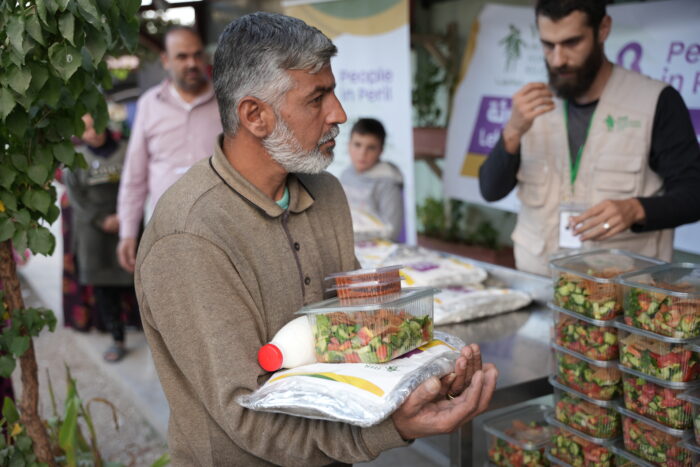
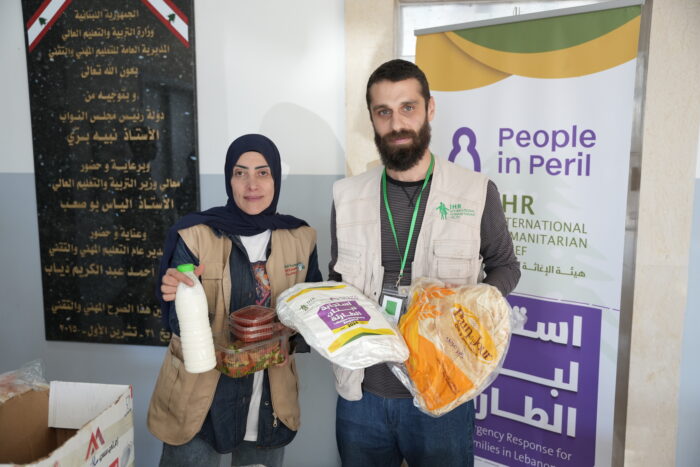
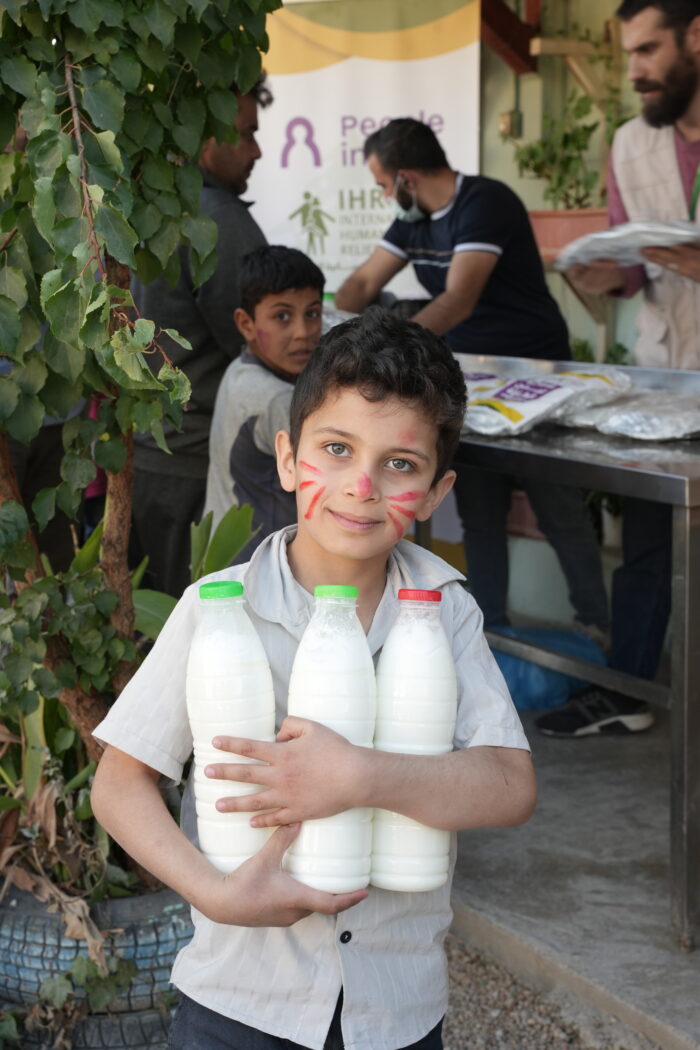
Our colleague Allison was in Beirut at the time of this crisis and has written some of her observations of what was happening there.
Kenya

In the spring we completed two excellent projects in cooperation with Cobec and Sotehub. First, we conducted beekeeping training and the participants were also given all the beekeeping equipment as well as help to sell their products at the local market. In the second project we built three greenhouses for three groups of women, about 60 women in total. All the produce the ladies grew in the greenhouses could be sold at the local market and they also received training in agriculture and business skills.
In August, we launched another project, building on the success of the greenhouse one and engaging other groups of vulnerable women who were unable to participate in the previous project due to not having access to water.
In November, we completed a project in partnership with AWAK that involved approximately 150 women. They received training in fruit, vegetable and plant cultivation, and were also given equipment to grow these crops at home. Other women participated in baking workshops, as well as marketing and financial training, so that they could sell their freshly baked breads and cakes and earn an income.
Palestine
In the summer, in cooperation with the Ministry of Interior, we sent a shipment of water jerry cans and hygiene kits to Gaza. From October until the end of 2024, with the help of our partner organization CESVI, we delivered drinking water to communities of internally displaced people in central and southern Gaza. We will also continue to distribute non-perishable food items to Palestinian men and women, with the help of partner organization Misr El Kheir Foundation. In late November and early December, our team visited Palestine, the West Bank, and began further collaborations with local organizations.
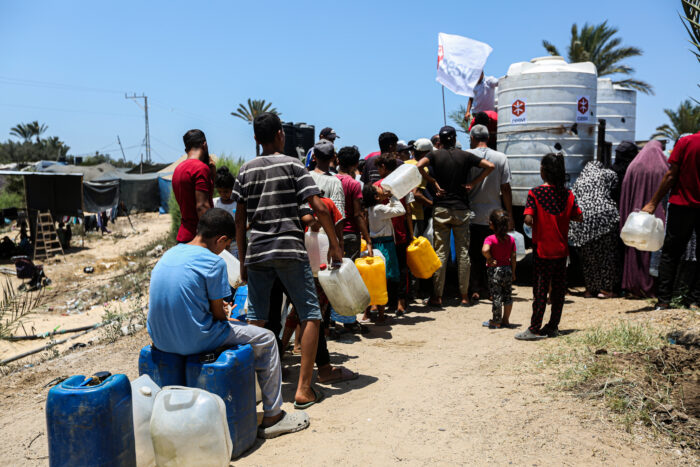
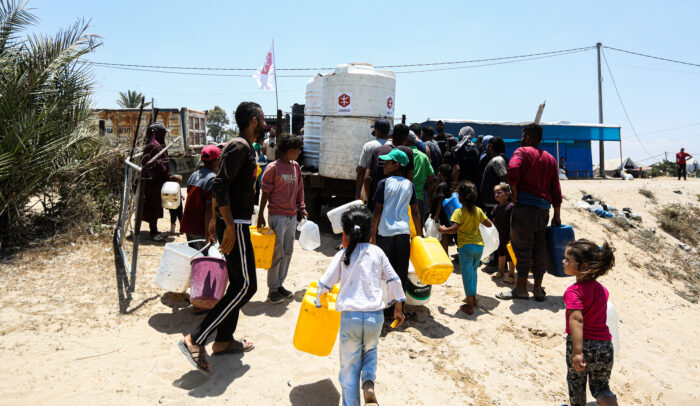
Global Education
Global education seeks to bring to light the complex interconnectedness of societies, countries, cultures, history, environments and economies in today’s globalised world. It also includes the One World International Documentary Film Festival. It celebrated its 25th anniversary in 2024. On that occasion, it returned after two years to the renovated premises of Kino Lumière in a significantly more inclusive form.
The festival ran for ten days in the cinema, followed by another week online. Since 2020, the festival has been cooperating with the DAFilms.sk portal, where it makes part of its programme available online for audiences across Slovakia.
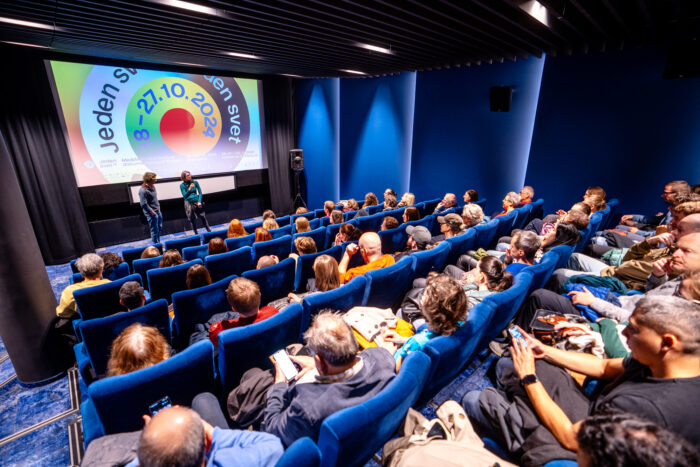
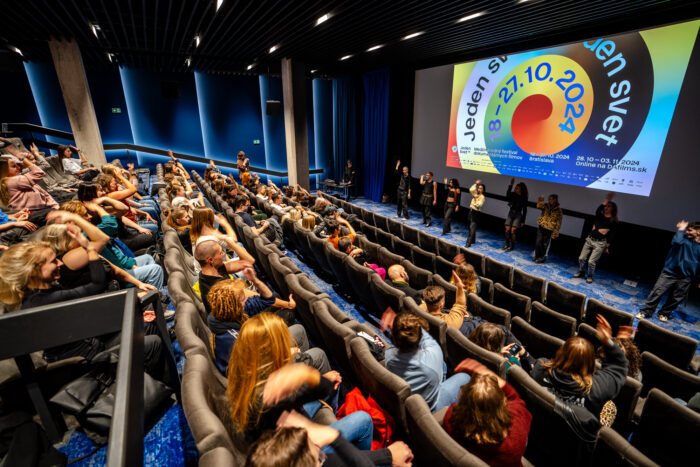
One World 2024 in numbers
- 10 festival days
- 47 films
- 2 short film sections
- 4 cinema halls
- 12 films with descriptive subtitles for the hearing impaired
- 6 films with audio commentary for the visually impaired
- 4 special screenings – 2 for homeless people, 1 for medical staff in Bratislava, 1 for female clients from Brána do života
- 1 screening for children
- 2 screenings for parents with children
- 12 films available online
- 8 311 views of the films
- 1 142 accreditations
- 51 volunteers involved
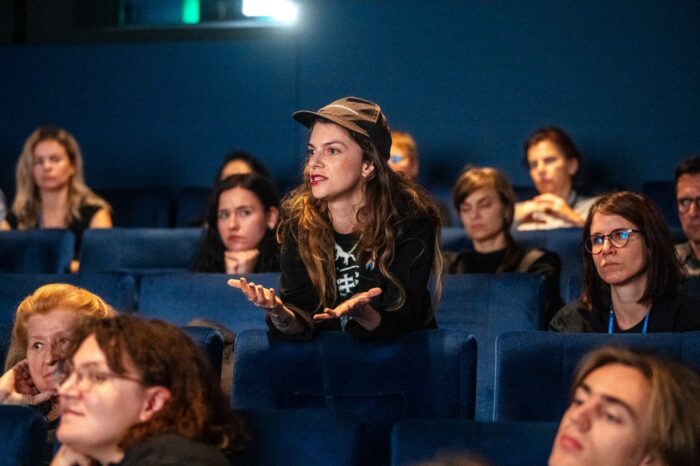
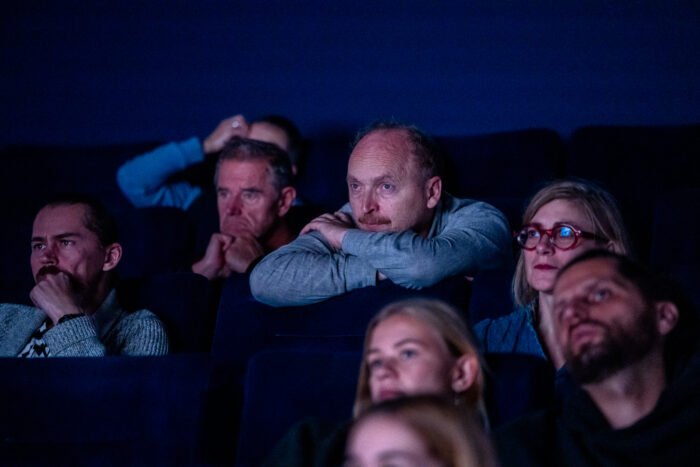
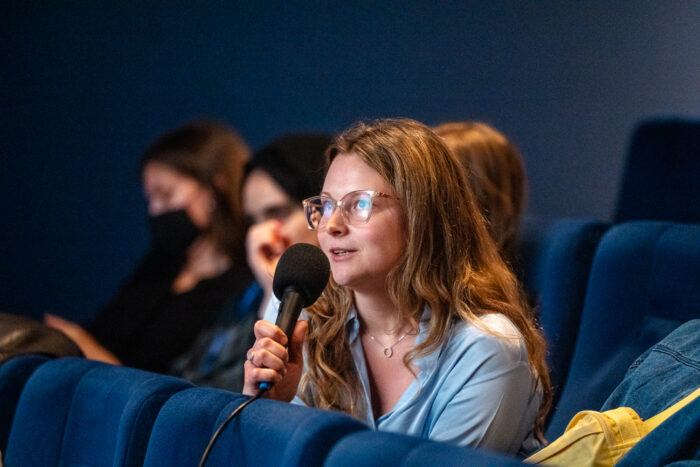
One World in Schoolsch
Also in 2024, the One World Festival has brought a programme for schools across Slovakia. Students were able to enjoy carefully selected films available online and follow-up live discussions with interesting guests. The films were shown in their original versions with colour-coded descriptive subtitles in Slovak. Selected discussions were interpreted into Slovak sign language. And this is what One World in Schools looked like in numbers:
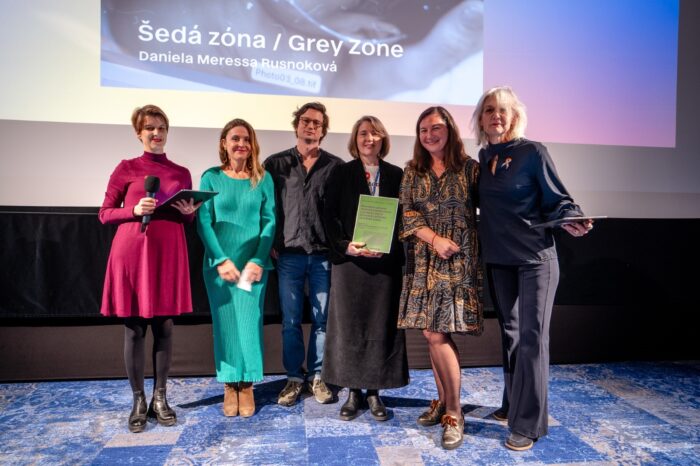
- 3 documentaries
- 5 discussions
- 2 941 students watched films in all regions of Slovakia
- 53 towns and villages
- 77 schools
- 93 teachers
The world between the lines
We organized the 3rd edition of the World Between the Lines journalism festival, which brought guests from many countries to Bratislava. Together we discussed and shared the latest trends and deeper issues and dilemmas of journalism. We also published the fifth series of the World Between the Lines podcast and started another one at the end of the year. We published a number of articles focused on the media special Health and Climate Change in Slovakia.
We taught three university courses for journalism students at Comenius University in Bratislava and the University of Constantine the Philosopher in Nitra. We also conducted workshops at the Faculty of Mass Media Communication at the University of St. Cyril and Methodius in Trnava. In total, we shared our knowledge with more than 80 students.
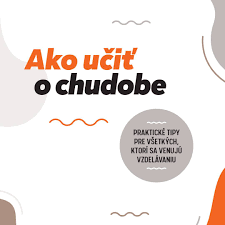
At the end of the year, we completed the How to Teach about Poverty manual, which offers inspiration on how to educate children and young people about poverty and social exclusion. Our aim was to create a publication that not only provides specific teaching ideas, but also background information on poverty and social exclusion, examples of good practice from schools and tips on other valuable resources.
At the same time, we were able to get earlier subject guides on global education to over 400 other people involved in education.
People in Peril’s Summer School
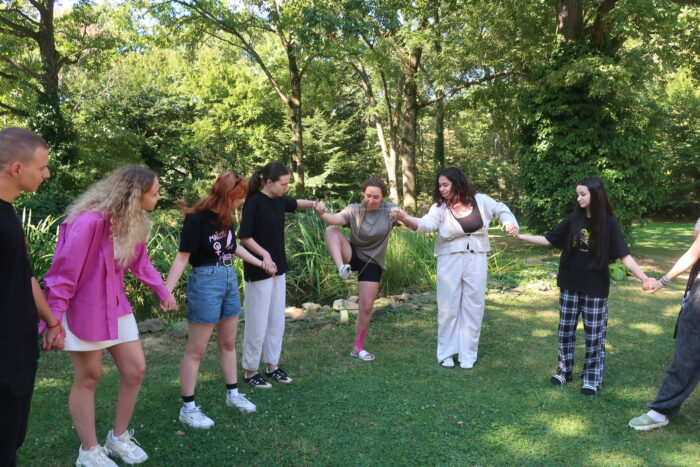
Over the summer, we organized our traditional LEČO – Summer School with People in Peril. It brought together 18 young people aged 16-20 from across the country. Over the course of five days, they engaged in a variety of discussions where they learned about pressing issues such as climate change and poverty, and also explored the power of individual choice.


